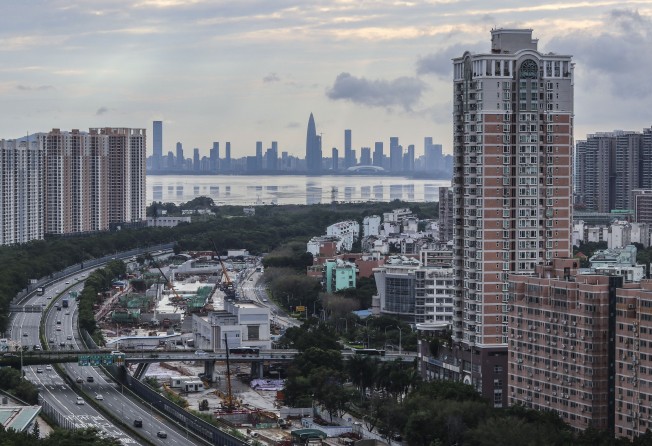China’s Greater Bay Area must match Hong Kong’s lifestyle and values to encourage investment and migration
The social integration between Hong Kong and the mainland would require a process of understanding, adaptation and mutual respect, with attentive learning to live together and active engagement in effective communications

Hong Kong has long been rated as a “world city” by international organisations. The city’s global prestige was reaffirmed this summer (Aug) when it was ranked 35th of 140 major cities in The Economist Intelligence Unit (EIU)’s annual The Global Liveability Index. This is an achievement for Hong Kong, as the EIU’s index ratings are a tough test. Each listed city is assessed and scored for “over 30 qualitative and quantitative factors across five broad categories: stability, healthcare, culture and environment, education and infrastructure”, EIU says.
Hong Kong not only leaped 10 places up the 2018 Global Liveability Index rankings, it was also third in Asia, behind Japan and Osaka but overtaking Singapore. The city’s ratings were boosted by high scores in its social stability and high quality of education. In 2015, Hong Kong dropped 15 index places, to 46th, largely thanks to the social movement connected to the local pro-democracy campaign. Elsewhere, Melbourne failed to top the index rankings for the first time in eight years, and was displaced by Vienna. Meanwhile, Honolulu, Hawaii was the highest-rated US city, at 23rd, and no single American city made the index’s Top 20.
Sustainability of liveable status
So Hong Kongers might cheer for their Global Liveability status. However, we must note that the city’s fundamentals have not changed significantly in the past few years. Hong Kong has a lower crime rate but still faces major challenges in three index-scoring categories: healthcare, culture and environment, and education and infrastructure. The pressure on healthcare could intensify as the city’s population ages, and although the level of corruption in Hong Kong remains relatively low, the Hong Kong Government’s enhancement of anti-corruption mechanisms is subject for further development. In the culture and environment category, Hong Kong still struggles for space and a strong, long-term and sustainable policy for the development of sports and culture, as in other “world cities” such as London and New York.
Hong Kong’s continued rise in the index depends very much on the quality of its education sector, and also of its infrastructure, which EIU describes as “the quality of road networks and public transport, the availability of good quality housing, the quality of telecommunications, and the quality of water and energy provisions”. Hong Kong faces major challenges in the provision of fine, affordable and liveable housing space, but it is also is under intensified pressure for road networks and public transport. MTR’s recent incidents also highlight the importance of construction quality and safety in the city’s major works. All these aspects would require the government and other stakeholders to work closely together with planned efforts and appropriate regulatory measures.
Greater Bay Area Development and liveability status
International studies of global cities suggest the success and sustainability of mega-city developments depend very much on a metropolis’ development in relation to its hinterland. The State Council of the People’s Republic of China has just announced a special arrangement that would enable citizens from the Hong Kong and Macau SARs and Taiwan to apply for resident cards that would enable them to enjoy citizen status on mainland China. Meanwhile, Beijing is actively pushing its national strategic plan to further develop the Greater Bay Area (GBA) in southern China. Referring to other bay area economies such as Florida and Tokyo, Beijing has a strong conviction to engage cities in Guangdong province to work closely with Hong Kong and Macau and inject new energy for development. These new development initiatives would create good opportunities for Hong Kong.
However, whether Hongkongers choose to embark on development on the mainland remains unclear, as people often look beyond the EIU’s broad “liveability” criteria when they consider where to live. Hongkongers might also consider whether their lifestyle could be maintained when they moved to the mainland. For example, one of the major challenges Honkongers face when they choose where to live and work in the GBA lies beyond the welfare entitlements generously offered by the mainland governments. Potential migrants would also ask whether the core values and principles that they have long been adhered to would remain when they worked and resided on the mainland. The social integration between Hong Kong and the mainland would require a process of understanding, adaptation and mutual respect, with attentive learning to live together and active engagement in effective communications.